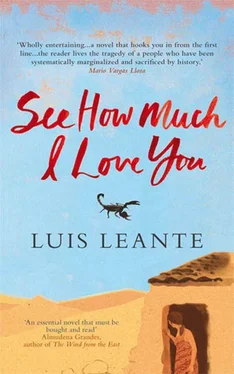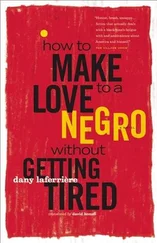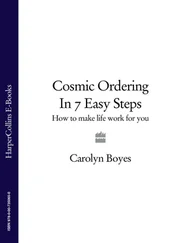Alberto appeared in the autumn. His presence proved healthy for the sad atmosphere in the household. Doctor Cambra’s mood changed when the young man paid them a visit. Alberto had a winning way with people. Even Mari Cruz, the maid, succumbed to his charms. Whenever he came round for dinner, she made something special and laid the table with the best china. Montse did not appear particularly impressed. And perhaps that was why he showed an interest in her. She was rather aloof, did not listen to the stories he told, and seemed to be thinking of other things when he was present. She would ask to be excused and go to her room as soon as she could. Such indifference hurt Alberto’s pride. He came to be captivated by Montse. Doctor Cambra realised this and secretly approved, but his major concern was that Montse should start her university career without distractions.
At the end of the year, Santiago San Román was still very much on Montse’s mind and in her heart. She knew that sooner or later he’d be discharged and come back to Barcelona. More than once she was tempted to go to his mother’s tobacconist in Barceloneta, but the thought of Santiago’s finding out filled her with embarrassment. Nor did Santiago make the slightest contact with her during the first few months of 1976. Montse’s feelings started to cool. She often compared Santiago with Alberto and realised that she’d been blind for over a year.
It took her some time, but eventually she went to the tobacconist. It was a difficult decision. She didn’t know what she would say. At the last moment she came up with an excuse: to give back the silver ring the boy had given her. If it really had belonged to her grandmother, it might have some sentimental value.
Something had changed, though. The door was new. She walked in a bit hesitantly. Santiago’s mother was no longer behind the counter. In her place were a couple who must be around fifty years old, both plump and kind-looking. Montse froze, again not knowing what to say.
‘I’m looking for the owner of the shop,’ said Montse eventually.
The woman tensed up, thinking she was trying to sell her something.
‘I’m the owner, how can I help you?’
‘Oh, well, I was looking for a lady who used to own this… some time ago.’
‘Yes, Culiverde’s daughter. She was very ill. She died.’ Montse wasn’t counting on that, but tried not to appear surprised.
‘And her son? She had a son called Santiago. He must have finished his military service one or two months ago. He was in Zaragoza. You see, I have to give him back something which belonged to the family.’
Montse showed them the ring on her palm. The man came out from behind the counter to talk to her more easily. He’d become serious. A customer walked in.
‘You say he was called Santiago?’ said the shop keeper. ‘Yes, I think that was his name.’
‘A tragedy,’ the woman put in. ‘He was killed in an accident in the Sahara.’
‘In the Sahara?’
‘Yes, during Marcha Verde. Isn’t that right, Agustín?’
Agustín was the customer who’d just walked in.
‘Who are you talking about? Culiverde’s grandson?’
‘Yes, this young lady here is asking about him.’
‘The poor lad. He was caught in that mess in Hasan last year. They say he was blown up by a grenade.’
‘It wasn’t a grenade,’ corrected the tobacconist. ‘It was one of those tanks; you know, ran him over.’
‘It was a grenade. They say it was in the papers.’
‘Anyway, a grenade, a tank, what’s the difference?’ concluded the woman. ‘The thing is, this girl here was looking for him.’
Montse heard the conversation as if from a great distance. She didn’t feel anything. She simply stood there with her hand still stretched out, the ring on her palm.
‘Let me see that, love.’
The woman picked the ring and examined it from up close. She was disappointed when she saw that it wasn’t valuable, and presently gave it back. When Montse left, the other three carried on their discussion about the exact cause of Santiago San Román’s death.
From then on Montse started being more receptive to Alberto’s attentions. Yet it still took him two years to persuade her to go out for dinner. His career, meanwhile, took off. He was offered a position in a hospital at an age when most doctors are still revising for entry examinations. Doctor Cambra didn’t quite approve of his leaving his academic career, where he had a brilliant future. But he tried to hide his annoyance in public. The young man would shine in any field he chose.
***
Ayach Bachir pressed the bell, and Montserrat Cambra buzzed him in. The Saharawi arrived with a smile. He offered his hand as he always did, limp and slightly tilted. Following a rite that she enjoyed, Montse asked him about work, his family, Fatma, the baby, the car, and his broken-down fridge. Ayach asked questions too, smiling at every reply. In fact, they had seen each other only two days before. Montse offered to make him a cup of tea with a teabag, but Ayach preferred coffee.
‘I’ve been looking for you in the hospital,’ said the Saharawi. ‘I thought you’d be on duty, but they told me you wouldn’t be coming into work for the next few days.’
‘For the next few months, Ayach. I’ve taken some time off.’
As Doctor Cambra made the coffee, Ayach went on talking about this and that. She was sure the man had come to speak to her about something important. But she knew he was in no hurry: first he had to receive his host’s attentions, drink some coffee, smoke a cigarette, and only later would he say what he had to say. She found the behaviour at once amusing and irritating, but was getting used to it.
‘There’s something urgent I need to tell you,’ explained Ayach at last.
Montse could only laugh. Now she understood why, as she had read somewhere, the rate of cardiac arrest and angina pectoris was abnormally low among Saharawis.
‘I’m listening. What’s so urgent?’
‘You see, in five days there will be a flight to Tindouf. I can book you a seat if you want. There are three left.’
Montse fidgeted in her armchair. Destiny was putting her to the test.
‘Tindouf? Me?’
‘Yes, it’s a safe city. It’s quite far from Algiers, so it’s not affected by terrorism. You can reach the Saharawi camps in an hour.’
Montse froze. Her eyes glazed over for the first time in a long while. She wasn’t sure of anything. Ayach Bachir appreciated her silence. He looked her straight in the eye. At last Montse smiled.
‘Do you really mean that?’
‘Of course. I wouldn’t be coming to your house to play a joke like that on you. What do you say?’
‘I don’t know.’
‘Have you got a valid passport?’
‘Yes.’
‘Then you decide. That’s all I need for the visa.’
Montse felt the floor move under her seat. She stood up, left the room, and came back with the passport in her hand. She was visibly shaken. It had not expired. First she put it on the table, then in her pocket. Ayach Bachir smiled, trying not to look disrespectful.
‘If you make up your mind, I’ll speak to my father tomorrow. He’s travelling to Libya in three days. Politics. But he’ll send someone to pick you up. You can stay at my sister’s jaima . It’s a humble place, but she’ll be very happy to have a guest like yourself.’
‘I’m not sure, Ayach. I don’t know what to say.’
‘Yusuf will be glad to see you. I’m sure he hasn’t forgotten a woman like you. Or should I say Santiago?’
‘You’re a sweetie, Ayach. But just the thought of it terrifies me.’
‘Are you afraid he won’t remember you?’
‘No, of course not. He wouldn’t remember me, I’m sure. Or would he? I don’t know. I need to think about it.’
Читать дальше




![Ally Carter - [Gallagher Girls 01] I'd Tell You I Love You But Then I'd Have to Kill You](/books/262179/ally-carter-gallagher-girls-01-i-d-tell-you-i-lo-thumb.webp)







